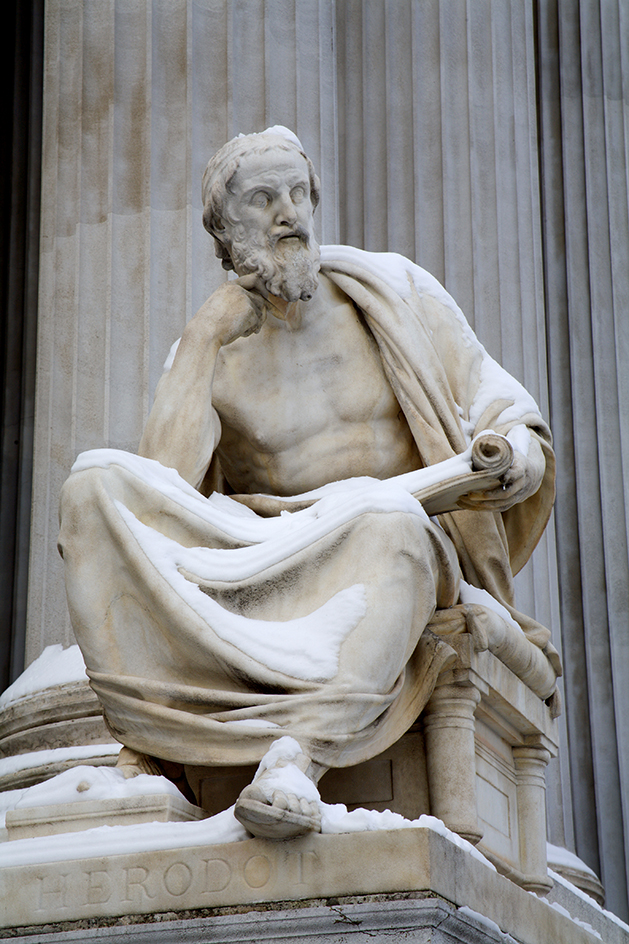Herodotus, << hih ROD uh tuhs >> (484?-425? B.C.), was the first Greek historian. He is famous for the nine books he wrote on the rise of the Persian Empire, the Persian invasions of Greece in 490 and 480 B.C., the heroic fight of the Greeks against the invaders, and the final Greek victory. Herodotus saw the wars between Persia and Greece as part of a series of struggles between Eastern monarchies and the West. Cycles of happiness and misery for states and individuals play an important part in his historical accounts. Herodotus thought that the gods used such cycles to punish human pride.

Herodotus was born at Halicarnassus, in Asia Minor (now part of Turkey). During his youth, he traveled widely in Greece, the Middle East, and North Africa. Everywhere he went, he studied the manners, customs, and religions of the people, and learned as much as he could of their history. The things Herodotus learned in his travels formed the materials of his histories. Although Herodotus questioned the accuracy of many of the stories he repeated, scholars have confirmed much of his information.
In about 447 B.C., Herodotus visited Athens, and three years later settled in the colony of Thurii, which Pericles was then founding in southern Italy. It has been said that Herodotus died and was buried at Thurii. For a quotation from Herodotus, see Postal services (Ancient times) .
See also History (The ancient Greeks and Romans) .
